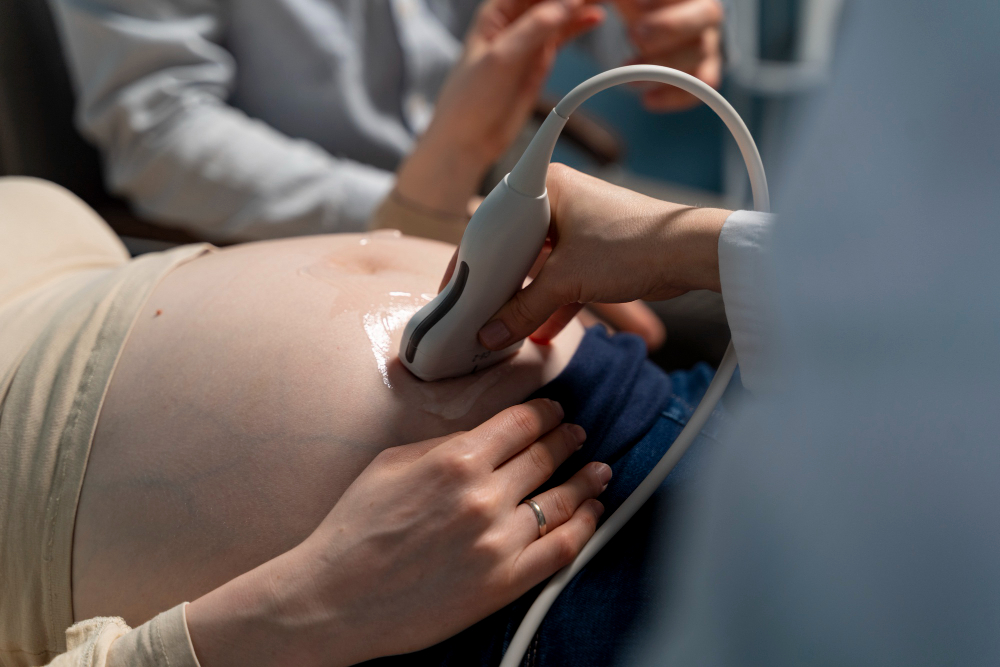An ectopic pregnancy is a potentially life-threatening condition in which a fertilized egg implants and begins to grow outside the womb, most commonly in the fallopian tube. This condition requires immediate medical attention as it poses serious risks to the pregnant individual. In this article, we will explore the causes, symptoms, diagnosis, and treatment options for ectopic pregnancies.
Causes of Ectopic Pregnancy
Ectopic pregnancies occur when the fertilized egg cannot make its way to the uterus and implants in another location. Common causes and risk factors for ectopic pregnancies include:
- Fallopian Tube Issues: Conditions that affect the structure or function of the fallopian tubes, such as scarring from previous infections or surgeries, can hinder the egg's journey to the uterus.
- Pelvic Inflammatory Disease (PID): Infections of the reproductive organs, particularly chlamydia or gonorrhea, can lead to scarring of the fallopian tubes, increasing the risk of ectopic pregnancy.
- Intrauterine Device (IUD): Although rare, pregnancies can occur with an IUD in place and have a higher chance of being ectopic.
- Previous Ectopic Pregnancy: Individuals who have had an ectopic pregnancy in the past are at an increased risk for another.
- Smoking: Smoking has been linked to an increased risk of ectopic pregnancies.
- Assisted Reproductive Techniques: In vitro fertilization (IVF) and other assisted reproductive technologies can increase the risk of ectopic pregnancy.
Symptoms of Ectopic Pregnancy
Ectopic pregnancies can cause a range of symptoms, which may include:
- Incidental finding: Early ultrasound scans within 3 weeks after missing your menses can reveal an ectopic pregnancy. It is advisable to do an early ultrasound scan to confirm normal pregnancy location.
- Abdominal Pain: Sharp, stabbing, or severe abdominal or pelvic pain, often on one side, is a common symptom especially in cases of ruptured or bleeding ectopic.
- Vaginal Bleeding: Vaginal bleeding, which may be light or heavy and is often different from a typical menstrual period.
- Shoulder Pain: In some cases, bleeding from a ruptured ectopic pregnancy can irritate the diaphragm, causing referred shoulder pain.
- Weakness and Fainting: If the fallopian tube ruptures and causes internal bleeding, it can lead to weakness, dizziness, and fainting.
Diagnosis of Ectopic Pregnancy
The diagnosis of ectopic pregnancy typically involves a combination of medical evaluation and diagnostic tests. Common diagnostic methods include:
- Transvaginal Ultrasound: This imaging test allows for visualization of the uterus and fallopian tubes to detect the location of the pregnancy.
- Pelvic Examination: A healthcare provider may perform a pelvic exam to assess for abdominal tenderness and check the size and shape of the uterus and ovaries. A needle may be inserted through the lower abdomen or vagina vault to detect internal bleeding.
- Blood Tests: Blood tests measuring the level of human chorionic gonadotropin (hCG), a hormone produced during pregnancy, can help diagnose ectopic pregnancy. In an ectopic pregnancy, hCG levels may not rise as expected.
Treatment of Ectopic Pregnancy
Ectopic pregnancies are not viable and cannot be safely carried to term. The primary treatment for ectopic pregnancy is the removal of the ectopic pregnancy to prevent complications:
- Surgery: If the fallopian tube has ruptured or if other complications arise, surgery may be necessary. This can involve removing the affected tube (salpingectomy) or, in some cases, repairing it (salpingostomy).
- Methotrexate: In cases where the ectopic pregnancy is detected early and the fallopian tube has not ruptured, a medication called methotrexate may be given to stop the growth of the pregnancy.
- Monitoring: After treatment, follow-up care is crucial to ensure the pregnancy has been successfully resolved, and there are no remaining complications.
Conclusion
Ectopic pregnancy is a serious medical condition that requires immediate attention. Early diagnosis and treatment are essential to prevent complications, including life-threatening internal bleeding. Individuals experiencing symptoms of ectopic pregnancy, such as severe abdominal pain or vaginal bleeding, should seek medical care without delay. With appropriate care, most individuals can recover from an ectopic pregnancy and go on to have a healthy pregnancy in the future.
